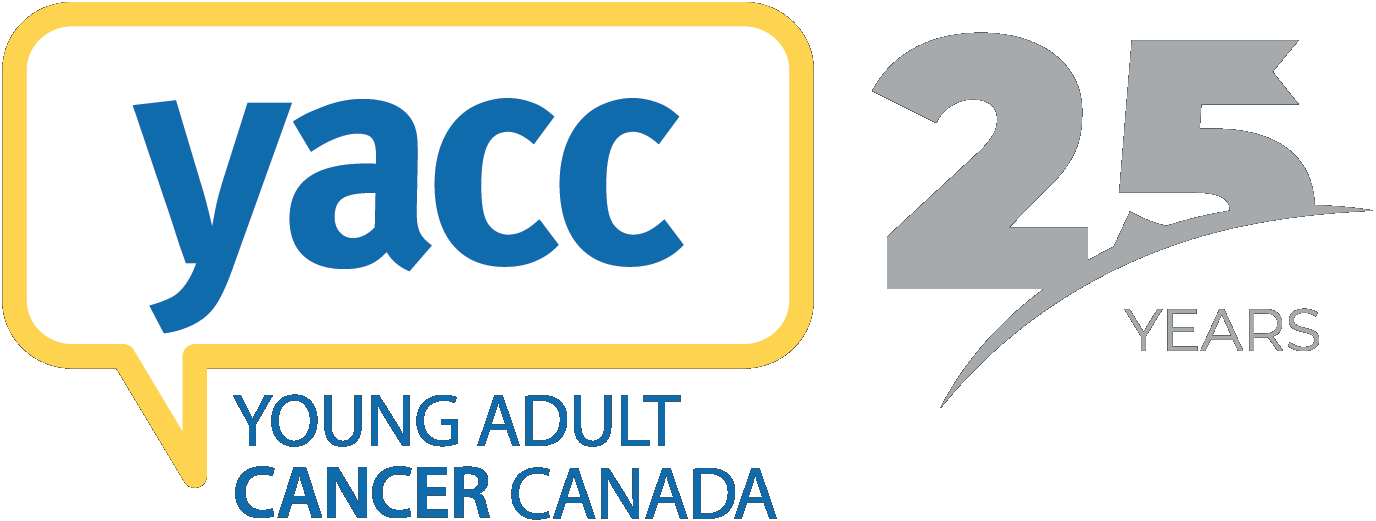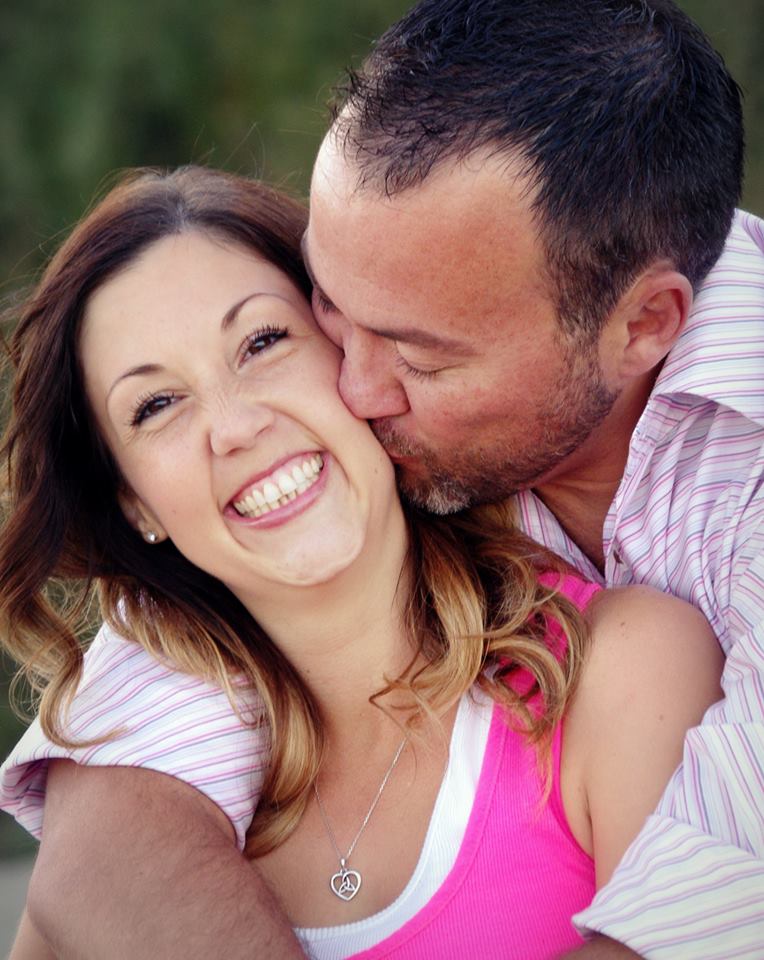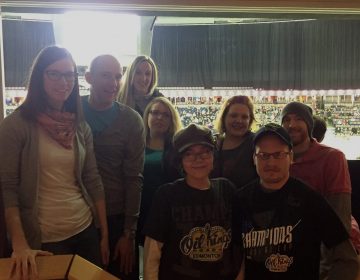Submitted photo
By Heather Bonynge
Valentine’s Day: It is still so close in our rear view mirrors that many of us still have LOVE on the brain. I personally do not celebrate the commercialized side of Valentine’s Day. I do, however, recognize the day much for the sake of my seven-year-old daughter, but also because it has become a tradition to spend the day not just with my “lover” (aka my husband), but with many of the people I hold close in my life. As someone who has come through cancer and faced the possibility of the end of my life at a very young age, love is something I hold in high priority. It is part of my mission statement.
Even though I don’t celebrate Valentine’s Day exclusively with my husband, he is one of the most important and biggest loves of my life. I met him when I was 19-years-old, married him when I was 21, and I have spent 16 years with him, loving him each and every single day (admittedly some days are harder than others).
Our first two years of marriage were the hardest. My husband is from South Africa, and he moved to Canada in 2002 to be with me. It was just after 9/11, so Canadian immigration laws had just changed. After a painfully drawn out process of trying to find a way for him to legally stay in the country, we were taken into a dimly lit room at the Saskatoon government buildings, and told if we wanted to be together our only option was to get married. We knew from the start of our relationship that we wanted to get married, this just pushed it ahead a couple of years. One month later, we exchanged vows in a beautiful and intimate ceremony in my parents’ living room. We were so in love, and I figured that every day afterwards for the rest of our lives would be just that way (truthfully).
Even though we got married, just as the Canadian officials had suggested, that didn’t mean that immigration was a snap. My husband was not allowed to work in Canada until the papers were processed, which took another six months after we were married. This meant me working long hours seven days a week in order to support us, and him sitting in front of the TV alone every day. He was miserable (understandably), and that fairy tale image I had of marriage quickly started to fall apart.
We fought, we didn’t speak to one another, and I often locked myself in the bathroom with tears running down my face. Then one day, he opened up to me. He told me how hard it was for him being here, how much he missed home, and how there were many nights that he would lay awake after I had fallen asleep, and he would think about packing his bags and walking out the door. I remember sitting there as he told me this, crying, and thinking he was going to leave me. He continued speaking though, and then he told me that each night he thought about leaving, he didn’t because he loved me too much; that’s when everything started to turn around.
It took some time, but that honeymoon phase, that everyone talks about with newlyweds, came for us nearly two years into our marriage when we were no longer so “newly wed.” We opened up to one another, shared our stories, our thoughts, and our fears, and the rest just started to fall back in place. That way I had loved my husband on our wedding day was back and even stronger because we had pushed our way through these growing pains together.
Life and love continued on this path for the next few years, and on July 29, 2008 it got even better when we welcomed our first child, Brynn, to the world. We were in such a good place. We were together, and we were building a family. Four and half months later, that all came to a crashing halt as I was diagnosed with cervical cancer on December 19, 2008.
I mentioned in one of my previous blogs that one of the first thoughts that came to my head when I received the news that I had cancer was that my husband would want to leave me. The thought was irrational, and my husband has never done anything to support that fear; he has been there for me every step of the way. However, here I was 27-years-old, in the midst of my most virile years, and that was all about change.
It’s funny how I have opened up so much of my life to so many of you over the past two years in my role as a YACCtivist, but the one subject I have been afraid to talk about, the one subject we all seem to be afraid to talk about, is SEX! How can we avoid it though? We are all adults here, young adults, and sex is a huge part of ourselves and our relationships. We are just learning explore and experiment with our sexuality, to make love and give love to another person, and then you throw cancer into the mix. What now?
Since my cancer was a gynecological cancer, we of course, had to get creative with some aspects of our sex life. My surgeries “rearranged” my female anatomy and presented new limitations when it came to having intercourse. For me, though, my new body hasn’t been the biggest obstacle with sex after cancer, it has been the fear, guilt, and grief that has been much more difficult and harder to overcome.
FEAR – Just before my first surgery to remove the tumour from my cervix, I had a lot of abnormal and persistent bleeding during and after intercourse. After my surgery, and seven years later, I still experience those same problems when my husband and I are intimate, and each time I deal with the fear that my cancer has come back. It is paralyzing, and it has at times sent me on the brink of a panic attack.
GUILT – This may seem a little far-fetched and ridiculous, but it’s truthful. Since being diagnosed, I have doubted my role and ability to provide for my husband as a woman. I can’t give him any more children, and I can’t always be a “vixen” in bed because my anatomy and my fear does hold me back sometimes. I worry that I am disappointing him, and I feel so guilty that I can’t give him what he deserves.
GRIEF – This is a big one, and it ties in with the fear and the guilt. For me sex is often a reminder of everything cancer changed about my life. I want to be clear, that I’m not saying I don’t enjoy sex. Despite the emotional obstacles that I face, my husband and I do have a wonderful sex life. There have been times afterwards, though, when the fear and guilt have really built up, that I just feel so unbelievably sad that it has to be this way. I am 34-years-old; this is not how this should be at this stage in my life!
So how do I deal with this? I am going to continue being honest here, and tell you that for a long time I didn’t deal with it at all. I kept all of these feelings to myself. I would make an excuse to go to the bathroom, I would lock myself in, and I would cry. I would take a series of shallow breaths, followed by deep breaths, and try to suppress the oncoming panic that lay just beneath the surface. Luckily, the bedroom was always dark when I came back out, so my husband couldn’t see my horribly red and puffy face (I am a seriously ugly crier). He knew something was wrong, but I often just brushed it off, and would snuggle up close instead.
It is easy for society to talk about the fun side of sex, to create the perception that it is always a performance of unbridled passion, but nobody ever wants to talk about the awkwardness, the dysfunction, or the problems some of us encounter when in the act of love.
I was embarrassed about how my body failed me during intercourse. I felt more guilt on top of my other guilt for the feelings I was having, and I was afraid to tell anyone about it. I didn’t feel I had anyone I could tell about it because people just don’t talk about this stuff. I dealt with all of this on my own, built up a wall, and tried to create the illusion of normalcy even for myself. Then, just like my husband had years before, I opened up.
I went to my cancer support group one evening, and had a great one-on-one session with our counsellor. I didn’t even give her full disclosure of what I had been feeling for so long, but I got the conversation started. When I came home that night, it was suddenly easier for me to be unguarded with the person who mattered most — my husband.
I have said many times when speaking about my experience with cancer that I didn’t know I had a story until I started to share it. I’ve also said that my role as a YACCtivist is often like free therapy because each time I share my story, I uncover another aspect of it, another truth that I didn’t realize was there until I opened it up for myself. Cancer, fear, guilt, SEX — it doesn’t matter what the topic is. What is important is for us to know or find a safe place or a supportive person we can open up to, and then start the conversation!
Who do you seek for support when you are “dealing”? If you are unsure, or you are still searching for that stanchion, know that YACC has your back and we are ready to get the conversation started, no matter what the subject.
Live life on purpose.
Heather









